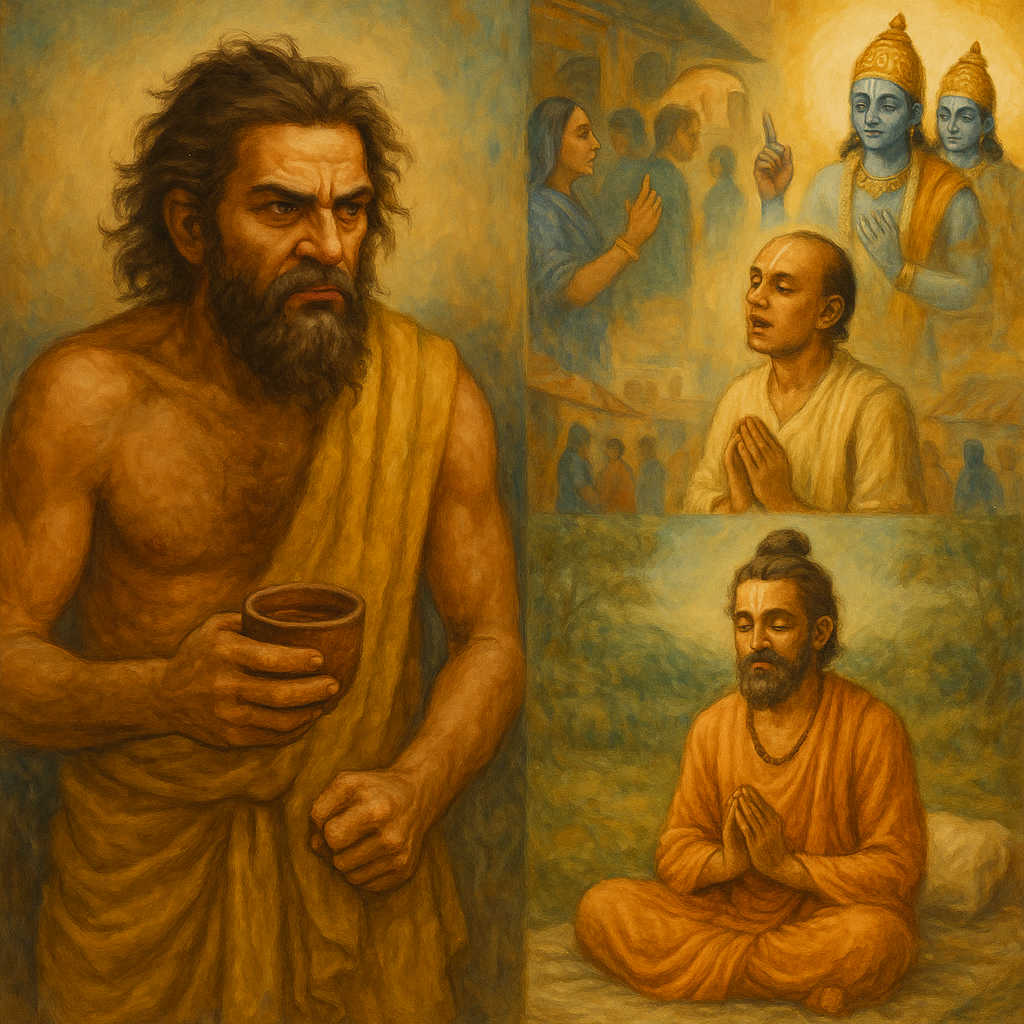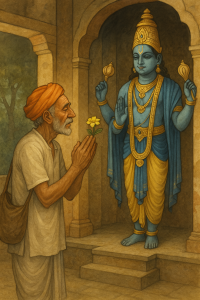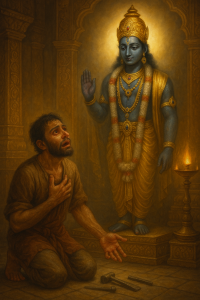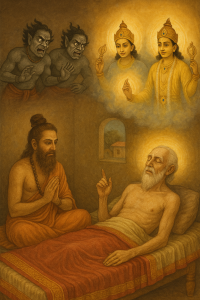A Brāhmaṇa Gone Astray
In a once-prosperous town, there lived a brāhmaṇa whose conduct was far from noble. Though born in a family of learning and piety, he had fallen deeply into the clutches of sinful life. Pride swelled in his heart. He gambled recklessly, drank without restraint, and kept company with immoral women. Disrespectful toward the Vedas, saints, and the Supreme Lord, he scoffed at the sacred, considering religious life a fool’s pursuit.
The townspeople feared him, but they also felt compassion. Many saintly brāhmaṇas prayed for his transformation, but his ears were closed, his heart hardened.
The Glorious Chance Encounter
One day, while wandering aimlessly through the marketplace, he overheard a sādhaka boldly reciting the glories of Ekādaśī, the holy day of Lord Hari. The devotee’s words rang out:
“Even the most sinful person, if he observes Ekādaśī sincerely, will be freed from the reactions of sins committed over millions of lifetimes.”
(Padma Purāṇa)
Though the brāhmaṇa mocked spiritual talk, these words echoed within him. That very day was, by divine arrangement, Ekādaśī. By some unknown force—perhaps a hidden seed of past piety—he did not eat that day. He neither planned to fast nor did he intend to please God. But all attempts to find food failed. Hungry and frustrated, he went to sleep with an empty stomach.
The Unintentional Vrata and the First Shift
The next morning, he unknowingly broke his fast with some fruit and water. In doing so, he had unknowingly completed Ekādaśī vrata. From that moment, a quiet shift began within. He could not understand it at first, but his desires were changing. The wine no longer brought pleasure. Gambling began to feel hollow. The company of base people felt tiresome.
Slowly, he found himself drawn toward devotees and holy men, listening silently to their talks. He was no longer a mocker—but a listener.
A Heart Transformed by the Mercy of the Lord
As weeks passed, his transformation deepened. He began consciously observing Ekādaśī. His faith in Lord Viṣṇu grew. The scriptures that once seemed like dry wood now felt like rivers of nectar. His past arrogance melted into humility. His tongue, once sharp with criticism, now danced with the holy name of Hari.
In time, he became known not for his past sins, but for his deep devotion. And when the time of death approached, he lay peacefully, chanting, “Nārāyaṇa… Nārāyaṇa…”
In that final hour, the Viṣṇudūtas, the celestial messengers of Lord Viṣṇu, arrived, their forms effulgent and comforting. They lifted the soul of that once-wretched brāhmaṇa and escorted him to Vaikuṇṭha, the eternal abode of Lord Hari.
Teachings from This Story
- Even a single Ekādaśī, observed unknowingly, can plant the seed of devotion. Such is the boundless mercy of Lord Viṣṇu.
- The holy name and devotional fasting purify even the most degraded heart. No one is beyond hope.
- We should never judge a soul’s present condition, for transformation can begin at any moment when touched by divine grace.
- Sādhu-saṅga (association with devotees) and śravaṇam (hearing śāstra) are potent forces that awaken dormant bhakti within the soul.
Origin of the Story:
This account is found in the Padma Purāṇa, where the glories of Ekādaśī are narrated to emphasize the unmatched purifying power of this sacred vrata.



